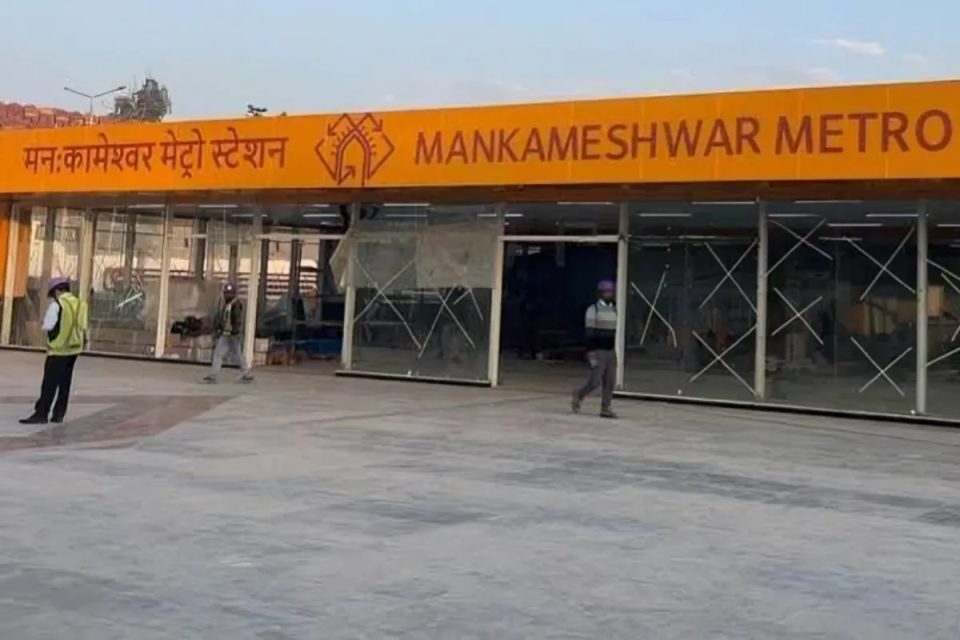In a move that has sparked controversy and drawn criticism from various quarters, the Uttar Pradesh Metro Rail Corporation (UPMRC) has renamed the Jama Masjid metro station in Agra to Mankameshwar Mandir. The decision, coming just months before the upcoming general elections, has raised questions about its timing and underlying motives.
The renaming directive was reportedly given by Chief Minister Yogi Adityanath during his visit to Agra last year. The decision was met with swift action, as the signage at the station was promptly changed to reflect the new name. The Jama Masjid station, now renamed Mankameshwar Mandir, is the third and final underground metro station on the priority corridor spanning from the Taj Mahal East Gate to the Sikandra monument.
According to Panchanan Mishra, deputy general manager of UPMRC, the name change was initiated following demands from local residents, who suggested honoring the nearby ancient Mankameshwar temple. However, critics argue that the move is politically motivated, aimed at appeasing certain voter demographics ahead of the elections.
Mahant Harihar Puri, administrator of the Mankameshwar temple, shared the historical significance of the temple, tracing its origins back to Lord Shiva’s visit to Mathura in the Dwapar Yug. While the religious importance of the temple is acknowledged, concerns have been raised regarding the timing and implications of the renaming.
The decision has not been without opposition, with some Muslim leaders denouncing it as a politically expedient move. Sami Aghai, chairman of the Bhartiya Muslim Vikas Parishad, criticized the renaming as a ploy to garner Hindu votes while marginalizing the Muslim community. Aghai emphasized that while Muslims may not object to the name change per se, they are wary of the government’s intentions and timing, which they view as driven by electoral considerations.
Amidst the debate surrounding the renaming, questions have been raised about its tangible benefits for the people of Uttar Pradesh. Some proponents argue that such initiatives contribute to development and upliftment, promising economic opportunities and improved infrastructure. However, skeptics argue that renaming places serves merely as a distraction from substantive issues and fails to address the underlying challenges faced by the populace.
In light of the upcoming elections, the timing of the renaming has amplified suspicions of political opportunism. Critics accuse Chief Minister Yogi Adityanath of prioritizing electoral gains over genuine development initiatives. The controversy underscores the delicate balance between identity politics and governance priorities in the run-up to the polls.
As Uttar Pradesh braces for the impending elections, the renaming of the Agra metro station serves as a reminder of the complex interplay between politics, identity, and development agendas. While some view it as a symbol of cultural recognition, others perceive it as a calculated maneuver to sway public opinion. Ultimately, the true impact of such initiatives on the welfare of the people remains to be seen, raising crucial questions about the role of governance in addressing the needs of its citizens.
The government’s assertion that renaming places will bring tangible benefits such as rice, bread, jobs, and housing to the poor of Uttar Pradesh is met with skepticism by critics who view it as a mere tool for political manipulation. Amidst these contrasting perspectives, the debate surrounding the renaming of the Agra metro station continues to resonate, underscoring the complexities of governance in a politically charged environment.

